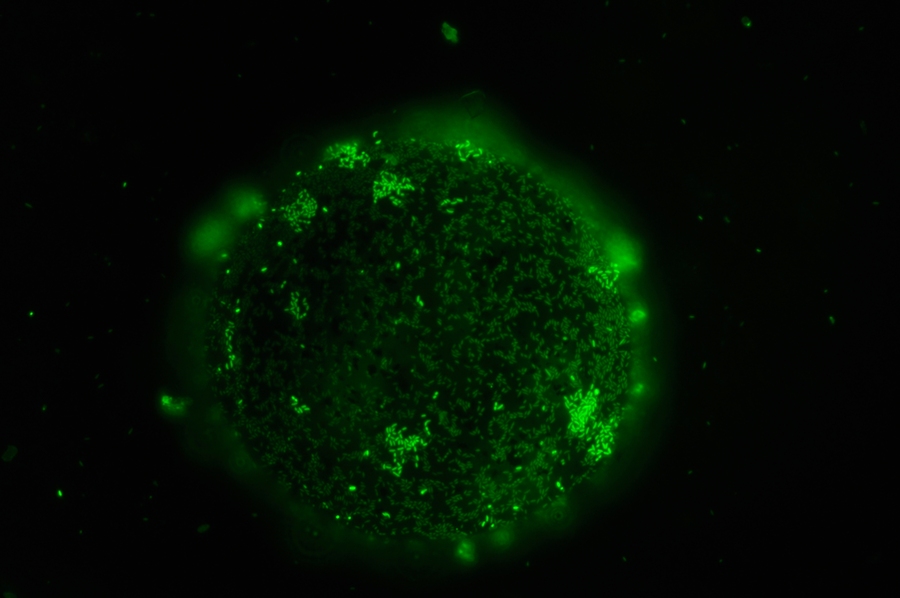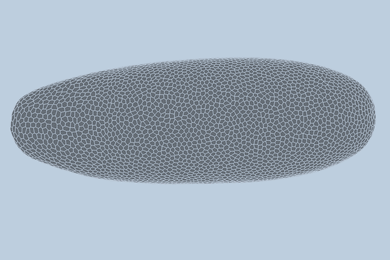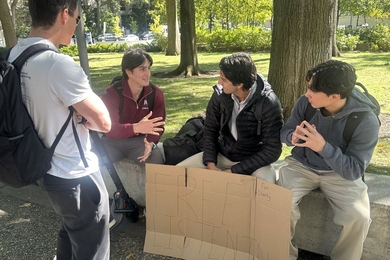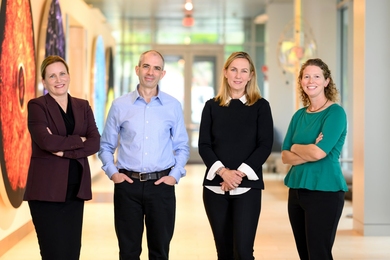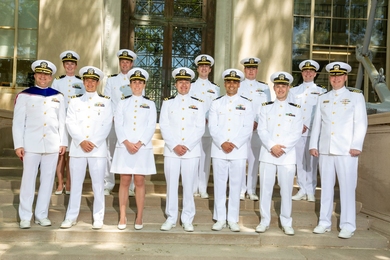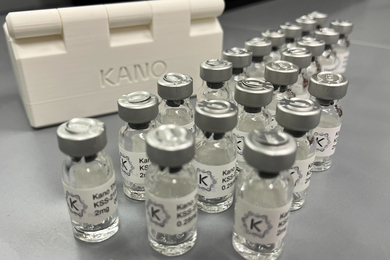Model microorganisms growing in pure cultures have been the basis of biological research for many decades — open a cell biology textbook and almost everything you will find has been discovered in yeast or E. coli lab cultures. While this speaks to the power of research on individual species, ecologists would be quick to remind us that pure cultures rarely exist in nature. Organisms live in an ecological context, and are often cogs in a well-oiled ecological machine with multiple species.
Microbial communities are one prime example of ecological systems that are far from being pure cultures, and these communities play fundamental roles in earth’s ecosystems. Despite their critical contributions to our world, our understanding of these collective systems lags decades behind our knowledge of pure cultures. The rules that govern their dynamics and function also remain largely unknown.
Now, a new Simons Foundation collaboration called Theory of Microbial Ecosystems (THE-ME, pronounced "theme") is attempting to fill this gap by discovering the principles of how microbial communities form and function.
Simons Collaborations like THE-ME are large-scale projects that bring together funded investigators from difference disciplines to find solutions to major scientific problems, such as the origin of life or the coding of information in the brain. THE-ME is being launched by a multidisciplinary team of researchers from across the United States and Europe, coordinated by MIT Department of Civil and Environmental Engineering Assistant Professor Otto X. Cordero and Professor Roman Stocker of ETH Zurich. They hope the effort will result in the development of fundamental quantitative theories that can help us understand and predict the behavior of microbial ecosystems.
“Some of the biggest open questions in biology remain at the level of collectives,” Cordero says. “Cells have evolved internal regulatory programs that allow them to sense their environment and adjust their behavior. By contrast, ecological communities lack any form of centralized control, they are distributed and decentralized systems. How such systems self-organize in a reproducible fashion in the absence of a central conductor is one of the most important questions in biology.”
THE-ME seeks to answer three central questions about microbial communities: how microbes in communities organize and distribute roles, how communities utilize resources for energy and growth, and how they respond to environmental disturbances and changes.
Cordero and Stocker, both environmental scientists, assembled a research team that will take a multidisciplinary approach to answering these questions. Their strategy is to develop model systems to study the interaction between cellular processes and community-level processes. The researchers hope to use these findings to discover quantitative laws that dictate the behavior of such microbial ecosystems.
To develop these model systems, the team of researchers will draw inspiration from the ocean, where communities of bacteria self-organize at micrometer scales to degrade particles of organic matter. One of the major benefits of studying oceanic microbes is their ecological relevance — by recycling organic matter these organisms drive the cycling of carbon in the planet. Moreover, new technology now allows scientists to recreate their microenvironments at microscales in the laboratory, allowing researchers to study their dynamics and function in synthetic ecosystems.
“Many of the major discoveries in microbial ecology took place in the context of marine microbes and, incidentally, in the Parsons Lab at MIT, which has a great tradition of pioneering microbial ecology research. We hope to continue and build from that tradition,” Cordero says.
In addition to Cordero and Stocker, the THE-ME research team includes Jeff Gore, a biophysicist and associate professor of physics at MIT; Mick Follows, professor of earth, atmospheric and planetary sciences at MIT; Martin Ackermann, a professor of molecular microbial ecology at ETH Zurich; and Sebastian Bonhoeffer, a theoretical biologist and professor at ETH Zurich. Also working with the team are Victoria Orphan, a molecular microbial ecologist and professor at Caltech; Mary Ann Moran, a marine microbiology and professor at University of Georgia; Terence Hwa PhD ’90, a theoretical physicist and professor at University of California at San Diego; and Naomi Levine PhD ’10, an ocean modeling theoretical ecologist and assistant professor at University of Southern California.
“Roman and I were looking for researchers that are at the top of their fields and had a strong quantitative background,” Cordero says. “Most importantly, we had to find people that could work well together. I think we have assembled an amazing team of scientists and we are looking forward to getting this project underway. I’m confident this cross-continental, cross-institutional project will prove extremely valuable.”
“The Simons Foundation truly makes large-scale research possible,” he adds. “We are extremely grateful for the foundation for funding THE-ME. The projects and experiments we are planning are foundational to microbiology and we appreciate the support of the Simons Foundation for our research endeavors.”
